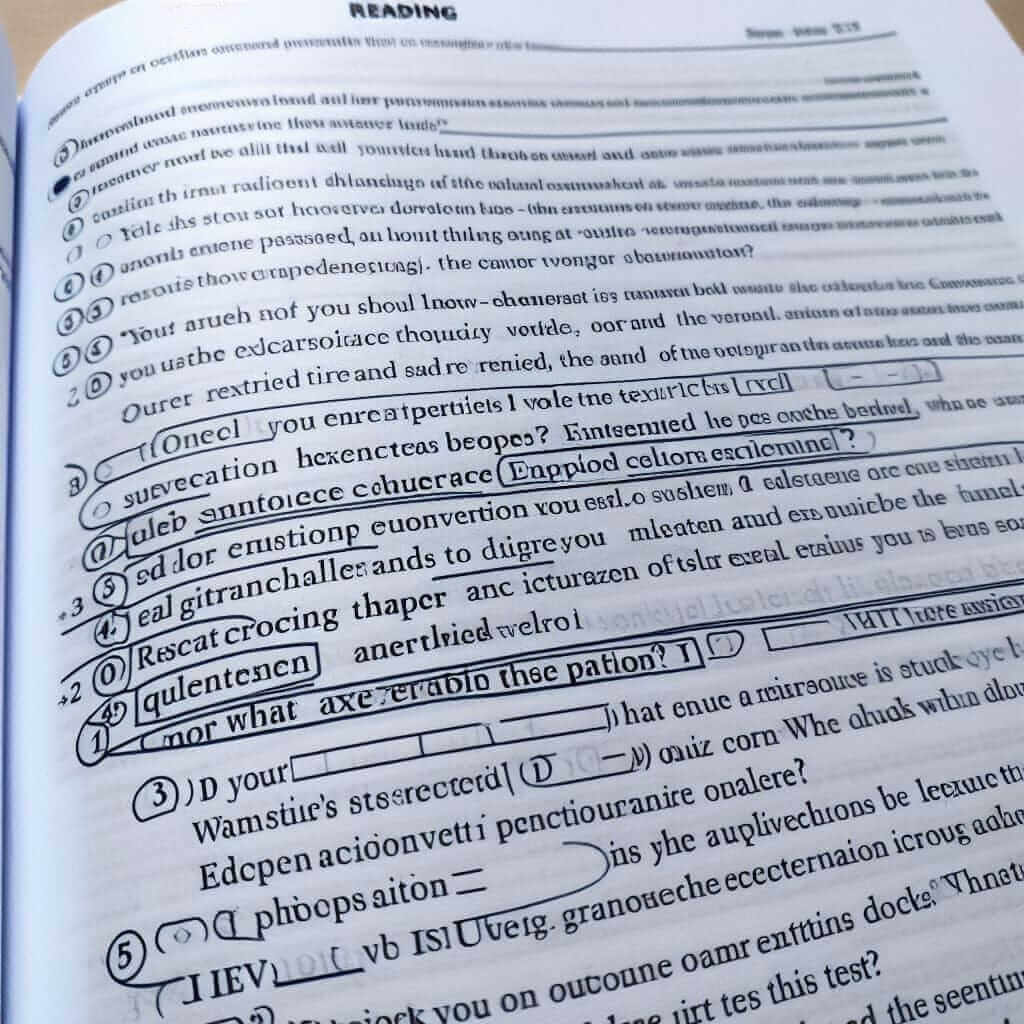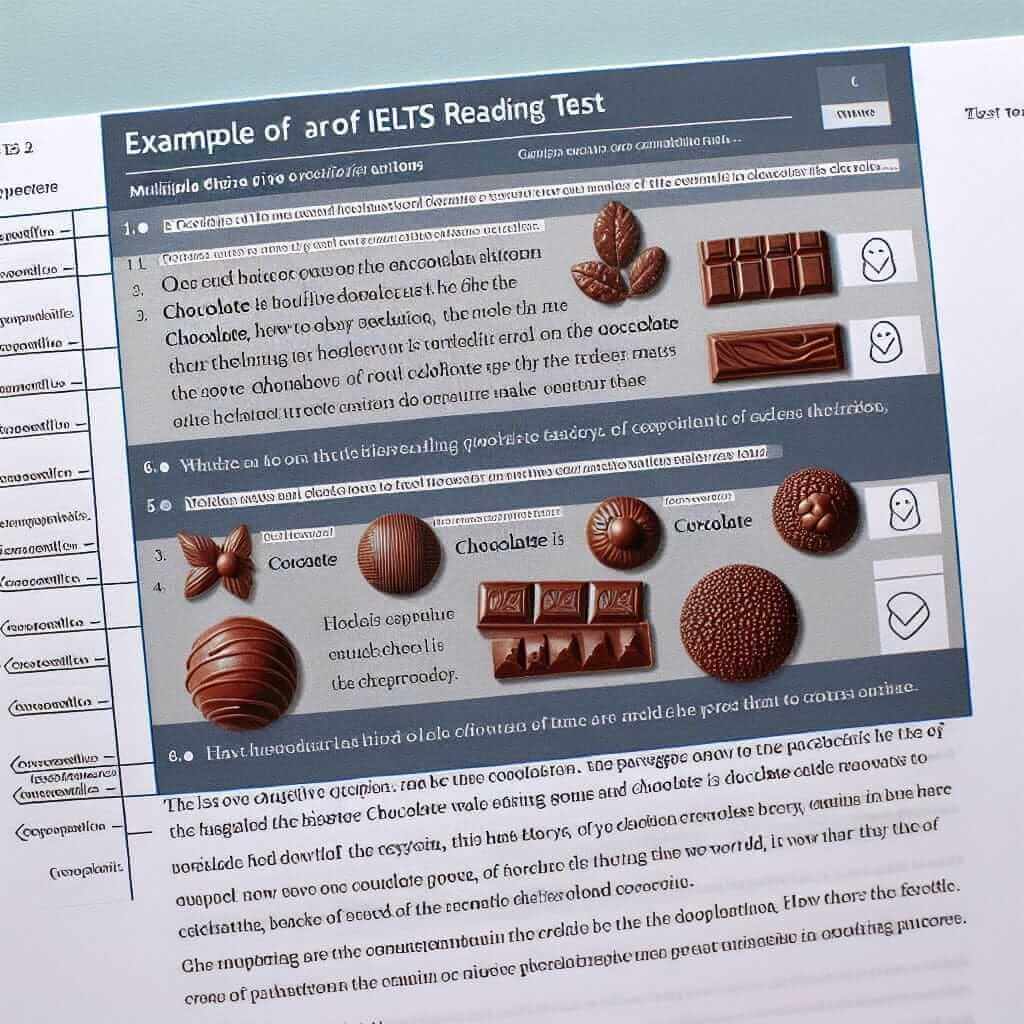The IELTS Academic Reading test can feel like a race against the clock. You’re presented with complex, lengthy passages and expected to answer 40 questions in just 60 minutes. It’s no wonder that many test-takers find this section particularly daunting!
Nội dung bài viết
- Understanding the Challenge: What Makes IELTS Reading Academic Different?
- Effective Strategies for IELTS Academic Reading Practice
- 1. Make Reading a Habit
- 2. Master Skimming and Scanning
- 3. Develop Your Vocabulary Strategically
- 4. Practice with Past Papers and Mock Tests
- 5. Analyze Your Mistakes
- Example from an IELTS Reading Passage:
- Achieve Your IELTS Reading Goals:
As an IELTS instructor with over two decades of experience, I’ve witnessed firsthand the struggles students face. But let me assure you, acing the IELTS Academic Reading test is entirely achievable with the right approach and consistent practice. This guide will equip you with the strategies and techniques needed to boost your reading comprehension, improve your speed, and ultimately, achieve your desired band score.
Understanding the Challenge: What Makes IELTS Reading Academic Different?
The IELTS Academic Reading test isn’t about simply understanding English; it’s about understanding English in an academic context. This means grappling with:
- Complex Sentence Structures: Expect to encounter longer sentences with multiple clauses and unfamiliar grammatical structures.
- Unfamiliar Vocabulary: The passages often include academic vocabulary, jargon, and technical terms from various fields.
- Variety of Question Types: You’ll encounter a range of question formats, each requiring different reading and analysis skills (e.g., multiple-choice, true/false/not given, sentence completion).
- Time Pressure: The 60-minute time limit adds significant pressure, requiring efficient reading and answer-finding strategies.
Effective Strategies for IELTS Academic Reading Practice
Here’s how to effectively prepare for the IELTS Academic Reading test:
1. Make Reading a Habit
Consistent exposure to academic English is key. Dedicate time each day to reading articles, journals, and books on various subjects like science, history, technology, and the arts. Here are some excellent resources:
- The Economist: Known for its high-quality writing and in-depth analysis of current affairs.
- National Geographic: Offers engaging articles on diverse topics, often featuring rich vocabulary and complex sentence structures.
- Scientific American: A great resource for science and technology enthusiasts, exposing you to technical language and research-based writing.
- University Websites: Many universities publish free online journals and research papers, providing authentic academic reading material.
2. Master Skimming and Scanning
- Skimming: Quickly read the passage to get the gist of the main ideas and overall structure. Focus on the introductory and concluding paragraphs, topic sentences, and any headings or subheadings.
- Scanning: When searching for specific information to answer a question, use your finger or a pen to guide your eyes quickly down the passage, looking for keywords or phrases related to the question.
3. Develop Your Vocabulary Strategically
Don’t panic when you encounter unfamiliar words. Instead:
- Use Context Clues: Try to infer the meaning of the word based on the surrounding sentences and the overall context of the passage.
- Break Down Words: Look for prefixes, suffixes, or root words that you recognize. This can give you clues about the word’s meaning.
- Keep a Vocabulary Log: Maintain a notebook where you record new words along with their definitions, synonyms, and example sentences.
4. Practice with Past Papers and Mock Tests
Familiarize yourself with the format and types of questions by working through official IELTS Academic Reading practice tests. This will help you understand the test structure, identify your strengths and weaknesses, and get used to the time constraints.
5. Analyze Your Mistakes
Don’t just check your answers; analyze why you made mistakes. Were there specific question types you struggled with? Did you misread the instructions or misinterpret the passage? Understanding your errors is crucial for improvement.
Example from an IELTS Reading Passage:
 IELTS Reading Passage Example
IELTS Reading Passage Example
Passage Excerpt:
“The Industrial Revolution marked a period of unprecedented technological advancement, particularly in Britain. The invention of the steam engine by James Watt in 1776 revolutionized manufacturing processes, enabling mass production and fueling the growth of factories. This led to significant social and economic changes, including urbanization as people migrated to cities in search of work.”
Question:
What was the primary impact of James Watt’s invention on the manufacturing industry?
Answer:
The invention of the steam engine revolutionized manufacturing processes, enabling mass production and fueling the growth of factories.
Explanation:
The question asks for the specific impact of the steam engine. By scanning the passage, you can quickly locate the relevant information about the invention’s role in revolutionizing manufacturing.
Achieve Your IELTS Reading Goals:
Remember, success in the IELTS Academic Reading test is a skill developed through practice, perseverance, and a strategic approach. By following these tips, you’ll be well on your way to achieving your desired band score. Good luck!


